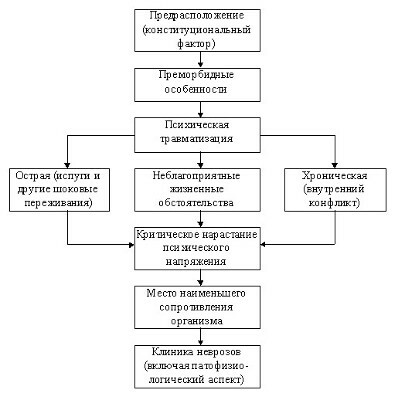What is dysgraphy?

Dysgraphia is a pathology that occurs against the backdrop of psychological problems. Therefore, psychotherapists consider it a disease. No matter how hard the kid tries, he will still write words with errors. In more severe cases, children are not at all able to master written language. This disorder is called "agraria".Very often, together with dysgraphy, dyslexia also arises - a partial disruption in the ability to pronounce correctly the words during reading. All these problems are most often associated with inattention, with features of spatial perception, with visual memory.
Violation of literate spelling is often accompanied by a dysorfography, which means that the child does not tend to memorize spelling rules and apply them in practice. All of the above deviations refer to psychological disorders, in which the child is considered an absolutely normal and healthy person.
A bit about the
dysgraphy Most often, dysgraphia occurs in boys than in girls. As practice shows and studies conducted in many schools, dysgraphy and dyslexia affects about 8% of schoolchildren around the world. This is a fairly large number of children. Therefore, parents should closely monitor the progress of their child and, if necessary, help him.
Some psychotherapists claim that dysgraphy is inherited. Therefore, if the child is genetically predisposed to non-perception of information, then teachers or psychologists must tell the parents of the baby about this. Very often it turns out that the child's parents also had problems with spelling.
In the presence of this pathology, the child experiences difficulties in learning from the first grade, because he is difficult to master the skills of spelling. It is especially difficult to write dictation. And if the child writes dictation, then he will contain many mistakes. In addition to grammatical errors, children with dysgraphy very often ignore the writing of capital letters, dashes, commas and other punctuation marks. Most often, these children have very poor handwriting.
Because of this deficiency, the child has problems with studying. Teachers often make comments and put bad assessments, parents scold the house, classmates mock. All this lasts from year to year and not the best way affects the child's mental state. As a result, a child can become self-contained, aggressive. Some children begin to skip classes to avoid ridicule and reproaches. Over time, these children become social outcasts and sociopaths.
Because of such problems, people with dysgraphy can grow up as hermits. They will try to avoid written work, unnecessary contacts with people. It will be difficult for them to write an essay or even sign a greeting card.
How to recognize the disgraphy of
This pathology is very easy to recognize. It is not necessary from the very beginning of the school year to worry about the child, if he writes illiterately. Perhaps he just has not mastered the rules of the Russian language and spelling. You should start worrying in the middle or at the end of the school year. If by this time the child confuses similar letters "Z" with "E", "P" with "L", "SH" and "SCH", then this is an excuse to be on the alert.
Usually children with dysgraphy write very slowly and have terrible handwriting. To understand why this happens, you need to study the child from afar. We all know that a person has three types of hearing:
- physical - thanks to him we hear the noise of nature( the sound of water, rain, leaves, thunder, buzzing of insects, knocking of wheels, traffic of cars, airplanes and so on);
- musical - thanks to him we can sing our favorite songs and enjoy music;
- speech - helps to assimilate speech.
It is worth noting that a person can have excellent musical and physical hearing, but at the same time, speech can be completely undeveloped. Most often in children who write with errors, hearing is broken. Therefore it is very difficult for him to learn how to read and write at the same time correctly. The child can read well, but at the same time make serious mistakes in writing. And all because he does not distinguish between sounds. Because of this, the task becomes more complicated, because you need not only to catch the sound, but also to write it correctly on paper.
Teachers do not have to deal with such children. After all, they often confuse letters in words and can write the word "dot" instead of the word "daughter".Because of this, not only will the proposal be broken, but its meaning will be lost.
Often children with dysgraphy can not cope with grammar, but they perfectly draw and succeed in other disciplines. To understand for sure, whether the child has this pathology, parents should show it to psychotherapists and speech therapists. The psychotherapist may ask to show the baby's notebook. If there is a mirror writing of letters in the notebook, then this may indicate that the child has a hidden form of a left-hander.
What can provoke the development of dysgraphy?
Dysgraphy is a serious pathology that has affected many people. However, until now, doctors and psychotherapists have not been able to find out the true reason why people suffer from this disorder. Many doctors still tend to believe that dysgraphia is a hereditary disease. However, some factors can also trigger the development of this pathology.
Factors provoking the development of dysgraphy:
- genetic predisposition;
- immaturity of the brain;
- frequent colds in the child;
- head injury;
- birth with complications;
- severe course of pregnancy;
- poor and incorrect speech in the family;
- suffered from infectious diseases;
- rare communication with the child;
- communication in the family in several languages at the same time;
- early and energetic training of the child on developing techniques;
- lack of visual images: books, pictures and so on;
- lack of psychological preparation of the child for school.
How to help a child suffering from dysgraphy?
Many psychotherapists are convinced that you can get rid of dysgraphy or improve spelling. Therefore, parents should seriously approach the solution of this problem and deal with the child.
This is one of the effective exercises that you need to do constantly. Parents should carefully reread the notes written by the child and emphasize, as well as cross out in them certain letters that the kid confuses or writes incorrectly more often. This will help the child develop visual memory. Also, the child will be able to analyze his actions and say the letters out loud.
Ask the child to rewrite as many texts as possible. To the kid as soon as possible remember the letters, offer him pictures, which depicts objects and letters.
Do not abuse the child if he does not get it. On the contrary, support it and praise it even with the slightest success. There is no prophylaxis against dysgraphia. But this pathology can be identified in the early stages. Best if it is done before going to school.
Children are at risk, who:
- grow up in families where they speak several languages;
- write with the left hand or retrain writing with the other hand;
- does not correctly perceive sounds;
- is poorly concentrated and has poor memory.
It is difficult to deal with this problem on your own. Therefore it is necessary to connect psychologists and speech therapist. It is also very important to deal with the child as much as possible, to train the hearing and speech, memory, concentration and other qualities.



